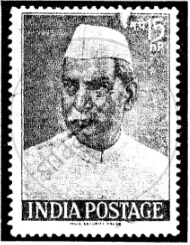Advertisements
Advertisements
Question
Examine the salient features of the Constitution of India with reference to the following:
India is a Secular State
Solution
The manner in which the word ‘Secular’ is introduced in the Constitution of India, it refers to religious aspect. Ours is the country that is dominated by maximum number of religions. Every religion follows different traditions and rituals. In this light, the makers of the Constitution had to look into every religion with the same point of view, hence it was decided to treat all religions equally, so as to avoid any sort of dispute that might erupt in the name of religion. The impartial attitude adopted towards religion on legal grounds stepped into the need to mention a word like-‘Secular’ in the Constitution. That means. Anyone is free to adopt any religion.
APPEARS IN
RELATED QUESTIONS
Tick mark (✓) the correct statement or (X) if it is wrong.
Before independence, our country was governed according to our Constitution.
This is a picture of the Chairman of the Constituent Assembly of India which drafted the Indian Constitution.

When did the Constitution come into force?
Name any two prominent features of the Constitution of India
What is one main strength of the Indian Constitution?
With reference to the making of the Indian Constitution explain the following:
How was the membership of the Constituent Assembly reduced as a result of the partition of the country?
With reference to the Objective Resolution explain the following:
What were the main points of the Objective Resolution?
How do you regard the Constitution of India as a real guide for the successive Governments in respect of the following:
The Preamble
With reference to the Right to Constitutional Remedies, answer the following question:
How has this right been given legal sanction?
With reference to the Right to Constitutional Remedies, answer the following question:
Explain any two writs issued by the courts for enforcement of these rights.
What are the three common restrictions on Fundamental Rights that the Constitution guarantees to citizens of India?
